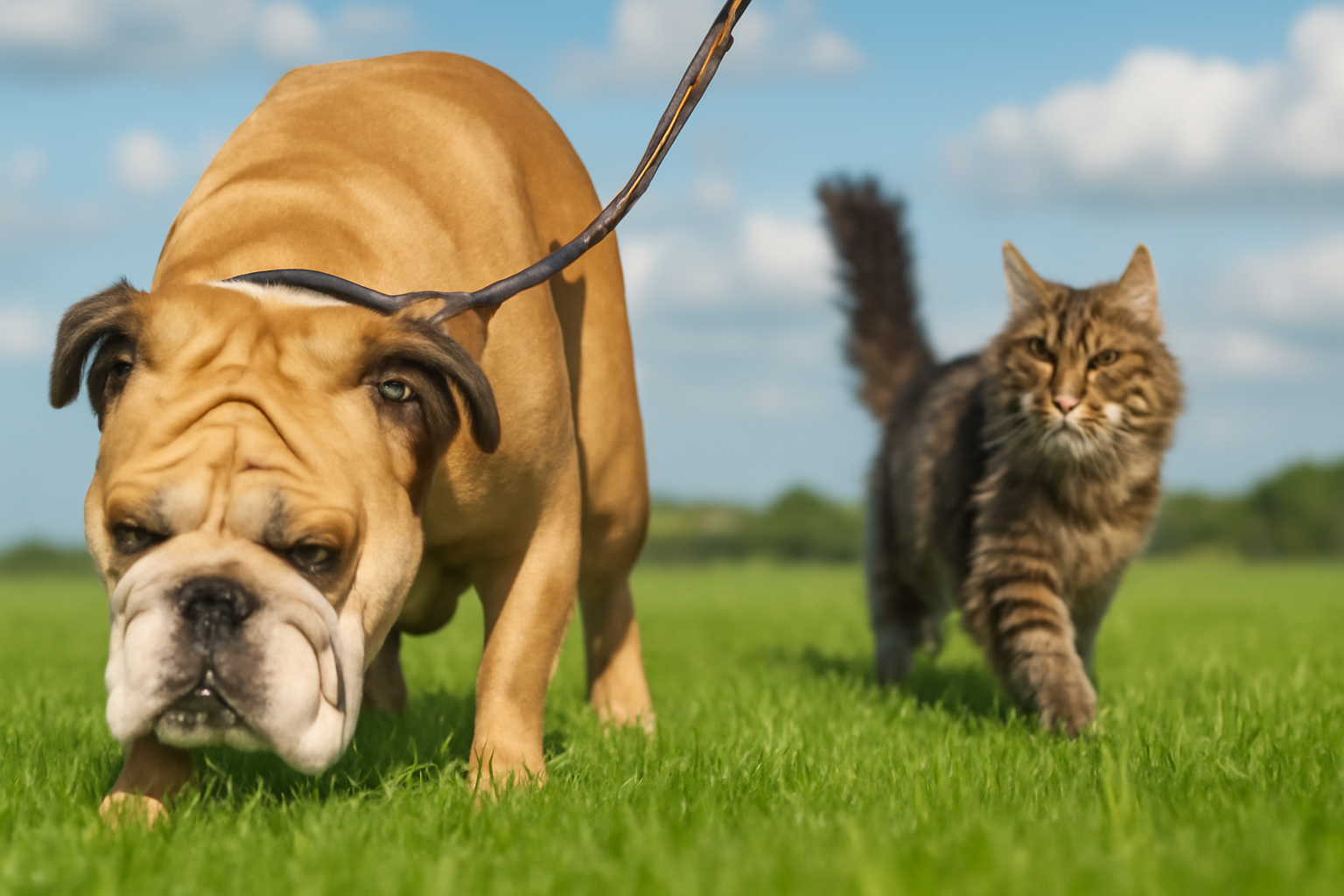Bulldogs and Maine Coon cats are special animals that everyone loves, but they have bones and joints that can be more easily injured. If we don’t take good care of them, they may feel pain and have difficulty moving when they are still young. As an owner, it’s very important that you help take care of them so they stay healthy and happy.
Understanding the Risks
Bulldogs are strong but small, with much of their body weight supported by short legs and relatively shallow joints. Even young bulldogs can experience discomfort from normal movement. Maine Coons, which are large and friendly cats, also put extra pressure on their hips, which can lead to joint problems throughout their lives.
The Power of Weight Management and Nutrition
Extra pounds can wear down the joints and turn small problems into serious diseases. Bulldogs need meals with the right amount of energy, lean proteins, and important nutrients. Treats should be low in calories and should not replace affection or playtime.
Maine Coon’s need a balanced and regular diet as they grow; rapid weight gain when they are kittens can lead to issues when they are adults. A high-protein, minimally processed diet throughout their lives strengthens muscles and protects the joints without causing fat gain.
Checking their weight every month and assessing their body condition helps adjust portions before small changes get out of control.
Low-Impact Exercise for Strength and Longevity
Not all activities are the same. Bulldogs enjoy short leash walks and, when safe, quick supervised swims that help their muscles without hurting their joints. Avoid strenuous games, stairs, or long runs.
For Maine Coon’s, it’s good to encourage them to climb on scratchers with wide, stable platforms or play by chasing feather toys to maintain their agility. These cats do not enjoy jumping or rough play much, and a soft carpeted area helps them move better.
Joint Support with Science-Based Supplements
A well-chosen supplement, along with food, can help keep cartilage healthy for longer. Glucosamine and chondroitin are often recommended to help joints move better, while omega-3 fatty acids from fish oil help reduce inflammation. Always talk to your veterinarian about new supplements to ensure they are safe and of the correct dosage.
Veterinary Partnership: Early Detection, Lifelong Care
Health exams are very important. For bulldogs, getting X-rays when they are puppies and then as adults helps find joint problems before they start to feel significant pain. Regular check-ups as adults help monitor arthritis progression and provide quick help if they start limping or feeling pain.
Maine Coon’s need hip checks when they are adolescents and should continue to have screenings with the veterinarian as they age. Discovering problems early can help slow disease progression and keep the cat more independent.
Medications, physical therapy, and, at times, other forms of pain management become very important if joint problems arise. Discussing with the veterinarian before issues develop ensures you won’t be caught off guard.
Adapting the Home and Lifestyle
Small changes can make a big difference. Place non-slip rugs near where bulldogs eat and rest to help them move safely. Provide soft beds, ramps, and quiet spaces away from household noise. For Maine Coons, wide shelves, short ramps, and soft elevated resting spots help protect their hips. Both animals enjoy high, comfortable beds that are easy to access.
Keep an eye out for warning signs: if they don’t want to play or get up, have trouble jumping or using stairs, or suddenly change behavior or appetite. Early intervention, before anything serious happens, is always the best choice.
Joint Wellness Checklist
| Focus Area | Bulldogs | Maine Coons |
|---|---|---|
| Weight Control | Strict portioning, regular checks | Moderate feeding, slow kitten growth |
| Activity | Short leash walks, gentle activity | Gentle play, structured climbing |
| Supplements | Vet-guided joint support, omega-3s | Same |
| Vet Screening | X-rays, routine arthritis checks | Hip scans, early problem detection |
| Home Environment | Anti-slip mats, soft bedding | Platforms, ramps, soft perches |
Key Principles for Lasting Comfort
- Provide the right amount of food and don’t overindulge in treats.
- Engage in light and regular activities that your pet is capable of doing.
- Only give supplements if your vet approves, and choose those that support joint health.
- Take your pet to the vet every year or more often if you notice anything different.
- Make your home comfortable for your pet, with good beds and non-slip floors.
Think Well!
Taking good care of bulldogs and Maine Coon’s, from their diet to their daily activities, helps them lead happy and energetic lives. Caring for them early on is a lifelong gift that assists these incredible animals in enjoying every moment with joy and ease.
